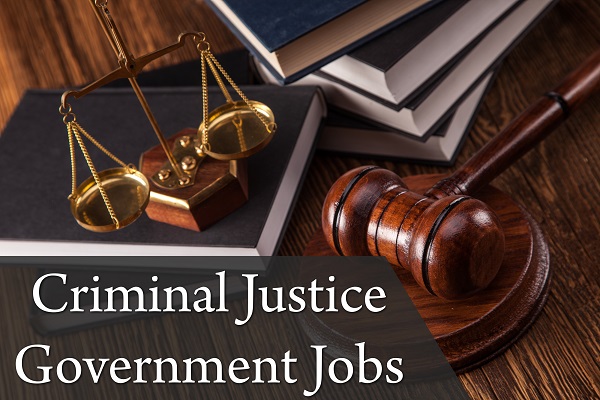

Criminal Justice Government Jobs
Popular Government Jobs in Criminal Justice
Federal, state, and local governments offer a wide variety of fast-paced jobs for applicants with an associate’s degree or diploma in criminal justice. Although the mention of a career in criminal justice might bring to mind being a police officer, the truth is that many government job openings exist in the criminal justice system to take you into any career path you could possibly imagine with your associate’s degree or diploma.
Whether your interests are in forensics, law enforcement, corrections, the courts, or other segments of the criminal justice system, there is probably a government job that will appeal to you. What follows are just a few of the many government jobs available to you with an associate’s degree or diploma in criminal justice.
Law Enforcement
Uniformed law enforcement personnel usually carry firearms and enforce the laws of the state in which they are employed. They have the power to make arrests, conduct searches, and issue tickets or citations. Typical law enforcement jobs at the state and local levels include:
- Police officer and deputy sheriff
- Fish and wildlife police and game wardens
- Investigators working for state and local agencies to enforce agency regulations and policies, such as alcohol and beverage control, child and adult protective services, and public health agencies
On the federal level, government jobs in criminal justice include police officers, investigators, and special agents for agencies such as:
- Bureau of Alcohol, Tobacco, Firearms and Explosives
- Federal Bureau of Investigation
- Drug Enforcement Administration
- U.S. Marshals Service
- U.S. Fish & Wildlife Service
Other federal agencies, such as the Department of Homeland Security and the U.S. military, have law enforcement jobs available as well.
Correctional Officers
Corrections is the segment of the criminal justice system that takes control of someone arrested and awaiting trial, or convicted and sentenced to incarceration. Correctional officers usually work in jails and prisons overseeing inmates.
Officers work in close contact with the inmates while maintaining order throughout the facility. On the federal level, jobs can be available in any of the many prisons operated by the U.S. Bureau of Prisons or by the Department of the Interior.
Courtroom Deputies
The efficient functioning of the federal court system depends, to a large extent, on the courtroom deputies. Deputies help judges by performing a number of duties, including:
- Managing what goes on in the courtroom
- Managing the court’s calendar, keeping track of case deadlines, and filing documents
- Keeping judges informed about the status of cases
- Safeguarding and managing evidence and exhibits during trials
- Coordinating with other clerks to schedule jurors and courtroom personnel
Criminal Justice Careers Starting with a Government Job
Many of the government jobs in criminal justice can transition into careers in the private sector once a person retires or elects to leave government service. For example, a career as a police officer may eventually lead someone into the private security field as an investigator for various businesses, including insurance companies.
The Power of Your Criminal Justice Education
A great criminal justice education will give you a competitive edge by introducing you to the institutions and principles that you will encounter in the government job you want. Contact us today to learn more about how the associate’s degree or diploma you can earn at The Paralegal Institute at Brighton College can be your first step toward preparing you for an exciting career in criminal justice.
